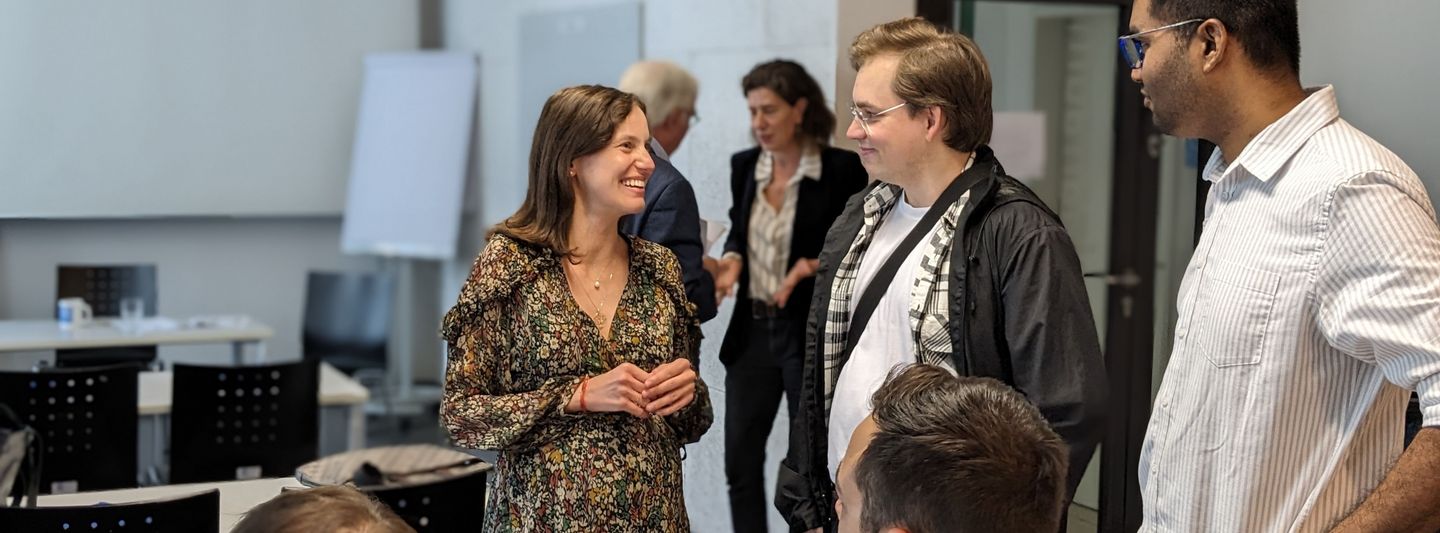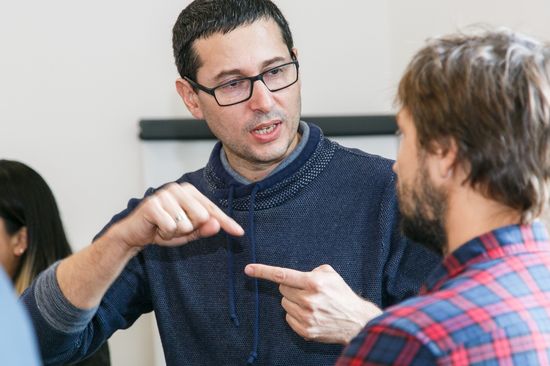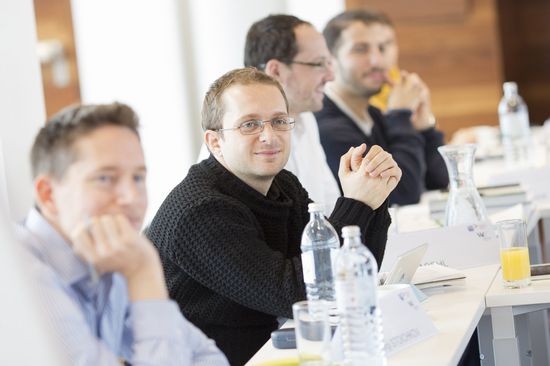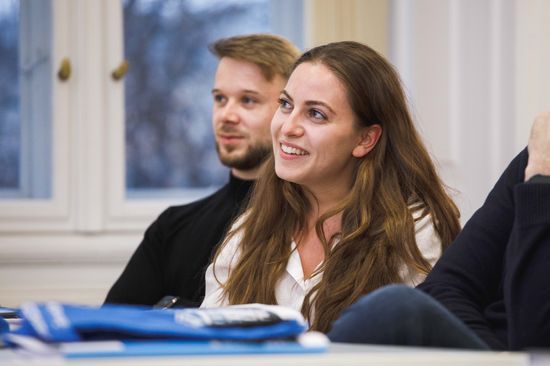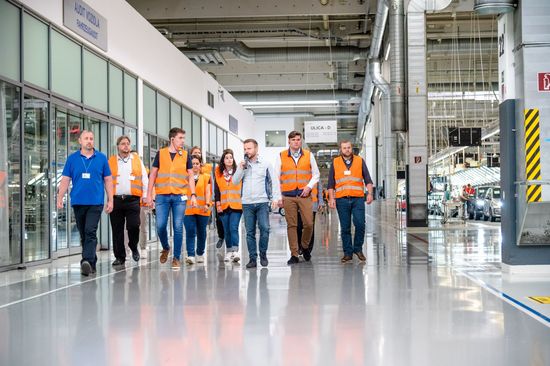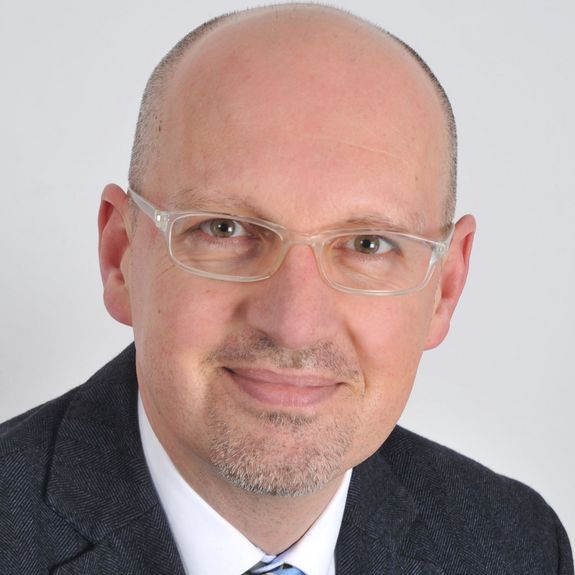I met Damir at my course “Mastering Difficult Negotiations” which I teach for the Executive MBA Programs at the TU Vienna – Academy of Continuing Education. From the first hours of the in-class interaction I perceived him as a very attentive and patient listener who asked thoughtful questions and integrated the answers into practice. As we were progressing to more difficult situations in our case studies, it became obvious that Damir displayed those rare assets which I have encountered only in skilled and experienced negotiators.
What are these assets? And how do they make a difference at the negotiation table? Here you can find the seven most significant ones.
Assets of skilled and experienced negotiators
1/. Mindfulness. Most people are busy with their thoughts, especially when they are under stress or feel unsecure. Skilled negotiators do it differently: they direct their attention at their counterparts during the interaction. This helps them build bridges and keeps the exchange of ideas and information flowing.
2/. Patience and stamina. Giving in to pressure or – even worse – creating pressure, affects rationality. Skilled negotiators are aware of this danger and avoid it smartly. In this way they gain time to think thoroughly and make the counterparts feel respected and heard.
3/. Judgment-free. Being judgmental is a big trap in negotiations because we can make fatal errors by assuming what somebody else thinks and wants. Those who neither jump to conclusions nor label people are able to stay focused on the objectives and reach their goals.
4/. Composure is the ability to self-regulate in difficult situations when others lose their nerves. Keeping a cool head and not letting yourself be drawn into unnecessary conflicts are great advantages, especially when things turn difficult or even dramatic.
5/. Active, not reactive. Skillful negotiators enter the negotiation room solidly prepared with a well-thought-out strategy and optimal mental fitness. Therefore, they reduce the risk of being caught on the wrong foot to a minimum. Moreover, they keep the upper hand by having a workable approach for every problem which may pop-up during the negotiation process.
6/. Versatility used in the context of negotiations means knowing how to take a non-conventional stance – at the right time. This helps unblocking/avoiding deadlocks and fostering new perspectives.
7/. Diplomacy. The key talent in negotiations is to build common ground and spot opportunities during the communication. And to be able to say no in a manner that makes you respected. No scorched land; just making limits unmistakably clear while remaining open for cooperation. Diplomacy is a matter of mindset and requires negotiation skills. Mindset and negotiation skills can’t just be studied like subjects at school/university, they can only be gained through guidance and experience.
Damir masters the art of being assertive without coming across as aggressive. A winner who let the others win too. A natural-born negotiator who makes even the most difficult conflicts look solvable.
We sat together for an interview which allowed me to dig into his experience. Damir’s answers are invaluable lessons which are worth sharing with everybody who is interested in learning from a skilled – and very modest – negotiator. And in becoming one themselves.
Here is our interview.
You have an extensive experience with negotiations. When did you realize for the first time that you are negotiating?
Damir: I come from a technical background in the very traditional and vertically organized petroleum industry. Even as a senior engineer and team leader, negotiation was not part of my role. That was reserved for others in the company—high-level individuals with the seemingly mythical skill required for negotiation. My purpose in meetings was straightforward and limited: to present our findings from a strictly technical perspective.
It wasn’t until my career shifted more towards the IT industry that I began, in my current role, to move away from this strictly technical mindset and embrace a more negotiation-oriented approach. I noticed a significant change in one particular meeting with a client, where we found ourselves at odds over an innovative approach that we wanted to implement to improve one of their processes. The issue was purely technical: the client was using a highly inefficient method in their operations.
The meeting was online, with cameras turned off, consisting mostly of technical teams and the head of the relevant department. This department head had been in his role for over a decade, during which time they had been using the same inefficient process.
From our perspective, everything seemed straightforward: improve the process, save them time, and in turn, save us time. What could go wrong? To our surprise, the meeting turned into a multi-hour discussion, going back and forth. We were baffled—why wouldn’t they just accept our solution? We found ourselves up against a highly defensive and even aggressive stance, especially from the department head on the other side.
Suddenly, it struck me that I needed to take a completely different approach. Change is often met with resistance, especially when things seem to be working just fine.
So, I shifted the narrative. Instead of saying, “The process is flawed and needs to change,” which reflected my technical perspective, I chose a different tack. I agreed with him, emphasizing that we were on the same page. I framed it not as a change, but as a simple enhancement to an already effective system.
This was the turning point. After receiving some encouraging words from their boss, the technical team, which had been mostly silent until then, began to contribute and the conversation started to move forward.
Looking back, I would say that this was my first real experience with negotiation. It marked my shift from a purely technical mindset to a more negotiation-oriented approach—one that focused on understanding and adapting to both the people and the situation.
How did you learn to negotiate before you attended our course?
Damir: As I explained earlier, I had no real understanding of what negotiation truly involved. After my career shifted, I found myself in the dynamic environment of a startup, where I quickly realized that my previous experience didn’t quite fit. I had to adapt to the new circumstances because my old approach simply wasn’t effective anymore. In every client meeting, I did my best to secure the most favorable outcomes for both myself and the company. I would describe my training as unintentional, shaped by the situations I found myself in and the necessity to adapt to change.
What makes a negotiation difficult in your eyes?
Damir: In my opinion, the most challenging part of negotiating is understanding the other side—their initial position and, more importantly, the shift in their narrative and stance from friendly or moderate to more aggressive and hostile during the process. This understanding has proven to be crucial for achieving any outcome, whether it involves correcting the course of the negotiations or deciding to walk away altogether.
In many situations that we’ve encountered with clients, these dynamics are often influenced by underlying interests or individuals operating behind the scenes, who can unintentionally or deliberately disrupt the entire process by swaying the other party’s team. This influence can stem from something as minor as casual coffee room conversations or as malicious as the reinterpretation of previously agreed-upon contract terms.
It’s incredibly challenging to combat these external influences and rebuild the trust and goodwill you’ve worked so hard to establish.
How do you recognize a difficult person in a negotiation?
Damir: In my experience, the most challenging people in negotiations are those who remain silent for most of the process and then suddenly “wake up” when about 70% of the work has already been done, feeling the need to offer their “contribution.” They are quiet most of the time, but very vocal when they finally engage. The higher their position, the more difficult the situation becomes. Their late involvement tends to drag the meeting backward, often requiring revisiting and renegotiating points that had already been agreed upon.
It’s important to pay attention to these silent participants and identify who they are. If they hold a high-level position compared to other participants, you can anticipate this behavior. My strategy is to involve all silent individuals in the process as early as possible.
These are situations where knowledge from training becomes invaluable. The advice to document everything agreed upon in meetings through follow-up emails and summaries, including deadlines for objections, proves to be incredibly useful.
Another type of difficult negotiator is someone who appears to be the process owner but, in reality, is being influenced by a “voice behind the scenes.” Typically, everything progresses smoothly until this unseen influence makes itself known, resulting in a sudden and dramatic shift in attitude, often towards aggressive and defensive behavior.
These individuals can be hard to identify, often recognizable by a sense of insecurity. Even if you recognize the situation, there’s not much you can do until the hidden voice speaks up. At that point, your only option is to adapt to the new circumstances.
What are the biggest difficulties which you encounter in business negotiations?
Damir: In a startup environment, almost every situation is challenging in the early stages. In my opinion, the most crucial and difficult decision is knowing when to stop. It’s about telling yourself, “This is enough; we can’t make this work.” The decision might mean ending the negotiations or even shutting down the project altogether, a choice that can be existential—either we walk away, or we risk the company’s survival.
The difficulty with stopping stems from the nature of being a startup: you rely primarily on intangible resources like skills and knowledge. There’s a strong eagerness to prove yourself, to demonstrate that you can get the job done. This eagerness makes you both vulnerable and exploitable. Balancing this desire to prove yourself with the reality that someone might take advantage of you—by constantly adding new requests, reducing the project’s value, and extending timelines—is challenging. Such situations can lead to overcommitment, which might ultimately destroy the startup.
As a startup, you become so focused on the goal that you might ignore the realities, accepting more and more just for the chance to work and build a reputation. The question then becomes: where do you draw the line, and why? This is the root of the most difficult situations we’ve faced as a company. Understanding when to stop is essential to maintaining not only the project’s viability but the company’s very existence.
What are you doing differently after the course as far as your negotiation style is concerned?
Damir: My Most Important Takeaways
1/. Preparation is Key: I now dedicate much more time to preparing for meetings. Previously, my preparation was technical, focusing on detailed aspects. Now, I focus on understanding the people involved—their backgrounds, comfort zones, and potential concerns. By using this knowledge, I can prepare for meetings in a way that anticipates the flow of the conversation, with strategies ready for any possible direction it may take.
2/. Relationship Building with a Long-Term Perspective: One of the most important lessons I learned from the course is the value of relationship building over seeking short-term victories. Coming from a technical background with limited negotiation experience, I had a misconception that negotiation was about winning, often in a competitive, zero-sum sense. However, building long-term business relationships with people you don’t know is much more challenging and, ultimately, more rewarding. This is what I now see as a true win—a win for the company’s future. So, I’ve shifted my mindset from win-or-lose to building and nurturing relationships.
3/. We Negotiate with People, not Companies: It’s crucial to remember that we are negotiating with real people, not just faceless companies. These are individuals with their own life concerns, problems, and influences, all of which can affect their positions and attitudes and cause significant issues in the negotiation process. This insight aligns with my own experiences and has been invaluable in helping me identify potential issues and understand others and their positions better.
What did you appreciate most about our course?
Damir: What I appreciated most was the sharing of real-life experiences in difficult negotiation situations and the approaches taken to overcome them. This practical insight truly helped me understand the essence of negotiations. It allowed me to connect the dots between my past experiences and the situations I had been in, framing them within a negotiation context. The realization of what it means to be in a negotiation setting—and recognizing how often I had found myself in one without even realizing it—was an eye-opening experience for me.
The second aspect I valued greatly was the practical negotiation exercises with other participants. These scenarios were carefully designed, requiring us to negotiate specific outcomes. I approached these exercises as opportunities to test my newly acquired understanding of negotiation, employing every tool I had from my past experiences. It was fascinating to observe how people reacted to different approaches in various settings. These exercises also highlighted how different personality types behave in these structured environments and within their assigned roles. Some individuals, regardless of their role, took the liberty to expand the scope of negotiations, while others adhered strictly to their roles and preset goals, leaving little room for maneuver. This closely mirrored some of the situations I had encountered in the past, making these exercises both educational and relatable.
How would you approach a difficult situation from the past now, after our course?
Damir: Before taking this course, I found it difficult to understand why certain situations were challenging in the first place. Questions like, “Why won’t they just accept something that is technically better for them?” and “How is it possible that they can’t see or understand this much better new approach?” were frequent. These questions often led to frustration on both sides, and very little was gained from these conflict situations.
Most of the difficult situations I encountered could have been resolved simply by applying what I learned in the course. The key is not to focus on “winning” but rather on building relationships. It’s crucial to listen to others, understand what they’re saying both aloud and between the lines, and start from there. Additionally, knowing who you’re talking to is vital. Prepare thoroughly and aim to understand the people involved. This approach could have resolved most of the difficult situations I faced in the past, as many problems weren’t brought into the meetings—they were created during them.
Which is the greatest added value for you?
Damir: Before taking this course, I had considerable experience interacting with people, navigating various situations, and finding solutions to different problems. I had observed behaviors and strategies that I either admired or found lacking. However, my experiences felt like a cloud of different points, conclusions, and observations—scattered without a clear framework. There was nothing to connect them into a coherent whole or give them broader meaning.
This course helped me do exactly that: It allowed me to take all those scattered points and organize them within the framework of negotiations. Suddenly, these points transformed into tools, rather than just floating pieces of information. This structured understanding has been the most valuable takeaway for me—a true learning moment that brought clarity and purpose to my past experiences.
To whom would you recommend my negotiation course and why?
Damir: I would highly recommend this course to anyone looking to advance in business, regardless of their role—whether in management, sales, technical fields, or any other area. This course offers a mind-opening, broader understanding of communication and problem-solving skills that are invaluable not only in business but also in everyday life. It equips participants with the tools to handle conflicts, build stronger relationships, and make more effective decisions in both professional and personal settings.
And, very importantly, this course provides the opportunity to meet incredible new people, share experiences, learn from each other, and build valuable business connections.
